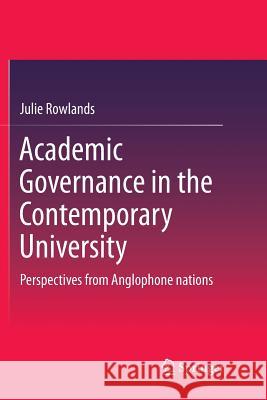Academic Governance in the Contemporary University: Perspectives from Anglophone Nations » książka
topmenu
Academic Governance in the Contemporary University: Perspectives from Anglophone Nations
ISBN-13: 9789811096822 / Angielski / Miękka / 2018 / 247 str.
Kategorie:
Kategorie BISAC:
Wydawca:
Springer
Język:
Angielski
ISBN-13:
9789811096822
Rok wydania:
2018
Wydanie:
Softcover Repri
Ilość stron:
247
Waga:
0.38 kg
Wymiary:
23.39 x 15.6 x 1.45
Oprawa:
Miękka
Wolumenów:
01
Dodatkowe informacje:
Wydanie ilustrowane











